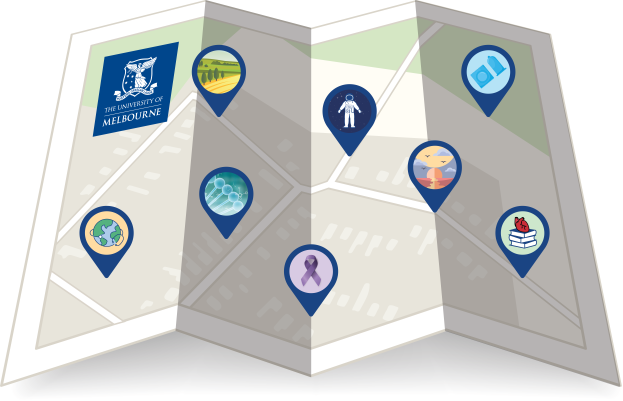MD Discovery and Course Advisor Program
MD Discovery options are brand new and exciting subjects in the redesigned Doctor of Medicine program, which launched this semester for MD1 students.

Discovery options in the new Doctor of Medicine (MD) curriculum allow students to chart their own path.
The Discovery options were created with the aim to provide students with the opportunity to create their own journey through the medical course and to engage with areas beyond the core medical content in areas that particularly interest them.
Through Discovery, students can individualise their medical degree by selecting from a range of subject options designed to meet their own learning needs and interests. Students will complete one Discovery subject at each year level of the MD. They may choose to engage in different topics over the four-year course or take a deep-dive into a particular area of interest for them.
Discovery learning outcomes build each year and extend core learnings into areas where the student wants to go. In the final year, Discovery subject students will complete the MD research learning outcomes with an integrated research or other scholarly project.
This year, there are seven custom-built Discovery topics that students can choose from.
They were designed specifically for the MD cohort by staff and associates of the Melbourne Medical School and align with the course’s intended learning outcomes.
The topics are:
- Death and Dying: Lifting the Lid
- Discover Cancer
- Foundations in Translational Clinical Medicine
- Human Health in the Space Environment
- Rural Health
- Sexual Health across Clinical Contexts
- Teaching and Learning in Medical Education
Students can also choose a subject from another school in the Faculty as their Discovery option. Over 20 subjects are available from a wide range of areas including population and global health, psychological health, and digital technologies. As well as allowing students to select a particular content area to study, Discovery offers students flexibility in the way they study, as the options on offer vary in both their duration and teaching period. This allows students to plan not only what they study, but when.
The Course Advising program has been a key component in helping students navigate through these choices. We developed and piloted an online model of Learning-Centred Course Advising that set our meeting as a teaching and learning interaction. Students undertook preparatory learning activities before attending their 45-minute Zoom meeting with their assigned Course Advisor. The Course Advisors facilitated a discussion about the student’s topic choices that aligned with their background, experience, interests, and future aspirations. Students then made their final preference choices after the meeting. All students received their first preference and our student feedback on our Course Advising process reported:
- 89% of respondents were satisfied, or very satisfied with the pre-meeting resources.
- 87% agreed the flexibility of choosing subjects for Discovery is a valuable part of the MD.
- 93% agreed the Course Advisor Program increased their understanding of the MD course.
- 94% of respondents were satisfied or very satisfied with their Course Advisor Program experience.
The Department of Medical Educationis soon to commence development of the next group of Discovery topics. A call for Expressions of Interest will be distributed shortly and if you would like to be a part of this initiative, we’d love to hear from you.